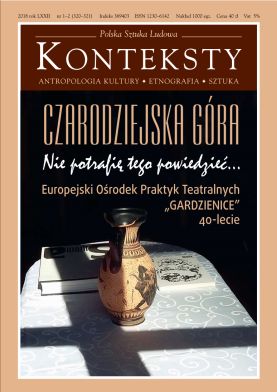Słowa po Zagładzie
Words after the Holocaust
Author(s): Katarzyna Prot-KlingerSubject(s): Language and Literature Studies, Jewish studies
Published by: Instytut Sztuki Polskiej Akademii Nauk
Keywords: Shoah;anthropology
Summary/Abstract: The article deals with the changed meaning of words – a consequence of the Holocaust. During the war “ordinary” and “innocent” words were used to describe successive stages of murdering people. It is difficult to find suitable words for describing the experiences of the Holocaust but new words connected with Shoah continue to appear. Problems with using words and the emergence of new terms reflect those connected with the transmission of mourning between generations. The author proposes a hypothesis claiming that members of the “third generation” – the grandchildren of the victims, perpetrators and witnesses – are ready to go through mourning, which could restore the correct meanings of words. This does not signify putting an end to the period of mourning. In the case of the Holocaust there exists a constant need for mourning, described by Derrida as demi-deuil, i.e. remaining in a position “between” – an oscillation between incorporation and introjection. Such a oscillation can also pertain to words, which can alter their meaning – they can be a thing or a symbol.
Journal: Konteksty
- Issue Year: 320/2018
- Issue No: 1–2
- Page Range: 129-134
- Page Count: 6
- Language: Polish
- Content File-PDF

